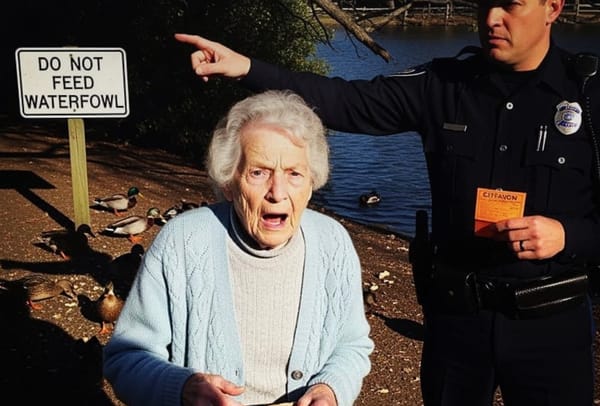Police shut down child's lemonade stand over permit issue

A young entrepreneur’s simple dream was crushed by bureaucracy.
Imagine setting up a small stand with a big heart, only to have your efforts halted by officials.
A Sweet Business Venture
It was a sunny afternoon, perfect for enjoying a refreshing drink. This child had a brilliant idea to earn some money and share a tasty treat with their community. They meticulously prepared their lemonade, setting up a colorful stand filled with eager anticipation.
The goal was simple: good lemonade for good people. It was a classic scene of childhood ambition and a desire to participate in the local economy.

Unforeseen Obstacles
But before many customers could even approach, an unexpected interruption occurred. Authorities arrived on the scene, bringing an end to the budding business before it truly began. The reason for the shutdown was not related to the quality of the lemonade or any misbehavior.
The situation quickly drew the attention of onlookers and even sparked conversations online. Many questioned the necessity of such a stern response to a child’s innocent endeavor.
The Reason Behind the Shutdown
The core issue, according to officials, was the lack of a necessary permit. Even for a temporary, small-scale operation like a lemonade stand, specific local regulations might require official authorization.
This detail, often overlooked by well-meaning parents and children, became the central point of contention. It highlighted a disconnect between simple community activities and complex legal requirements.
"We just wanted to have some fun and make a little money. We didn't know we needed a special paper to sell lemonade."
The child’s statement, relayed by a supportive neighbor, underscored the unawareness of the rules. It was a learning moment, albeit an unpleasant one, about civic responsibilities.

Community Reaction
News of the incident spread quickly through local social media groups. The common sentiment expressed was one of disbelief and a touch of frustration. Many felt that exceptions should be made for children’s ventures, fostering entrepreneurship rather than stifling it.
Some pointed out that similar situations have occurred in other towns. They argued that these regulations, while sometimes intended to maintain order, can sometimes feel excessive when applied to innocent activities.
A Matter of Regulation
The debate ignited discussions about the balance between enforcing rules and supporting community initiatives. Proponents of the permit requirement emphasize the importance of adherence to all local ordinances, regardless of the scale of the operation. This ensures that all businesses, big or small, operate within legal frameworks.
However, critics argue that such strict enforcement can discourage creativity and business spirit among young people. They believe a more lenient approach, perhaps with educational outreach, might be more appropriate in such instances.

The Underlying Question
The incident raises an important question for many communities: where should the line be drawn? When does a child’s lemonade stand become a business that requires formal oversight? It’s a complex issue with valid points on both sides.
Ultimately, the young lemonade seller learned a valuable, albeit unexpected, lesson about the rules that govern commerce, even at its most humble beginnings.



